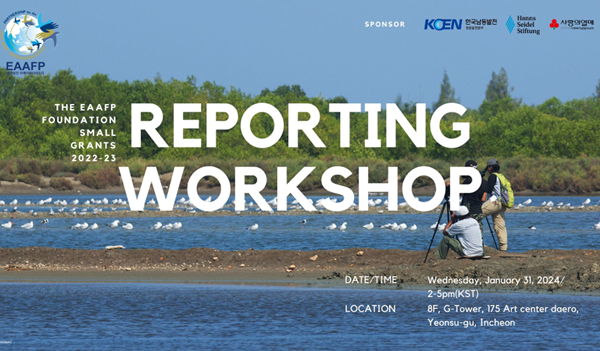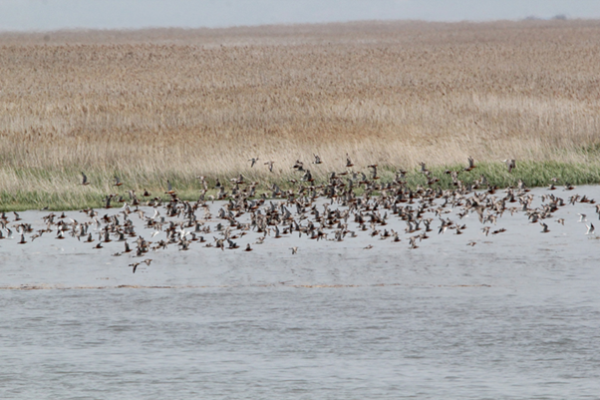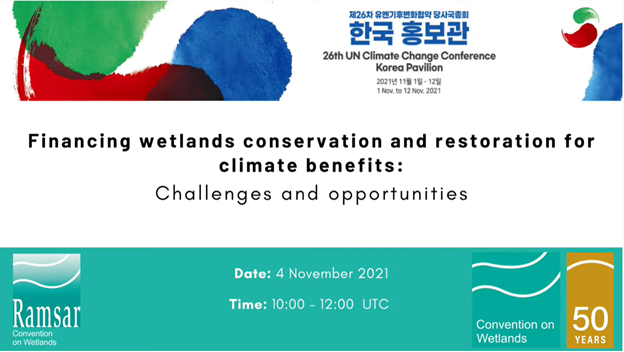
On 4th November, a side event “Financing wetlands conservation and restoration for climate benefits: Challenges and opportunities” was organized at the United Nations Framework Convention on Climate Change (UNFCCC) 26th Conference of the Parties (COP26). Organized by Ramsar Convention on Wetlands, the event highlighted the significance of financing for protecting and restoring the wetlands and its challenges and opportunities from the public and private sectors.
Ms. Martha Rojas Urrego, the Secretary-General of the Ramsar Convention started the event with a welcoming remark. She expressed that under the strategic plan of the Convention, the Parties have identified the need to build capacities and knowledge and to scale up the work, which requires financing opportunities from public and private funds so that conservation and restoration of wetlands can contribute to tackling the climate change problems.
At the event site, sitting in the panel joined Mr. Warren Evans, Special Project Facilitator at ADB, Mr. Andreas Reumann, Head ad interim of the Independent Evaluation Unit of GCF, and Mr. Carla Muller-Zantop who works for Danone’s global Water Stewardship Program, as representatives from public and private funding sectors, while Ms. Milagro De Camps, Vice Minister of International Cooperation in the Ministry of Environment and Natural Resources of Dominican Republic and Mr. Alfred Okot Okidi, the Permanent Secretary of the Ministry of Water and Environment of Uganda as representatives of national governments. Ms. Patricia Zurita, the CEO of BirdLife International moderated the panel discussion and Mr. Doug Watkins, Chief Executive of EAAFP participated virtually to state from a regional perspective.
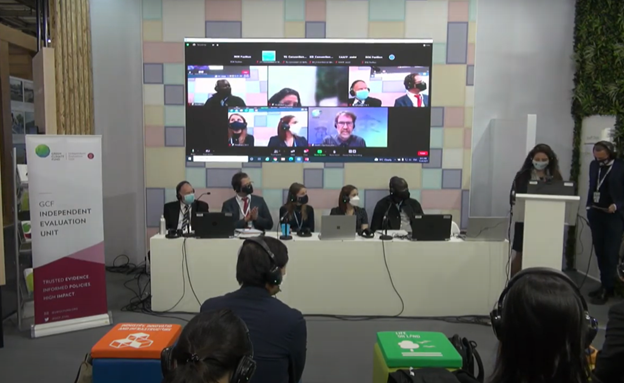
Mr. Warren Evans specified the critical link between biodiversity and climate change and Asian Development Bank’s commitment to climate and nature-based finance through the Regional Flyway Initiative which was officially launched at CBD COP15 in China earlier (here) and at COP26 in Glasgow (here). He mentioned the importance of the local-based and community-based efforts for commitments for conservation of wetlands which was difficult for ADB to support, but now it will be achieved through the Regional Flyway Initiative. Mr. Evans finished his speech with opportunities of funds and grants from public and private sectors and the importance of national governments’ commitment to the conservation of wetlands and biodiversity.
Mr. Andreas Reumann and Ms. Carla Muller-Zantop introduced their organizations and stated the significant role of public and private sector’s investment for conservation and restoration of wetlands and nature. Ms. Milagro De Camps and Mr. Alfred Okot Okidi shared their experiences projects that took place in their respective countries and their accomplishment through these projects.
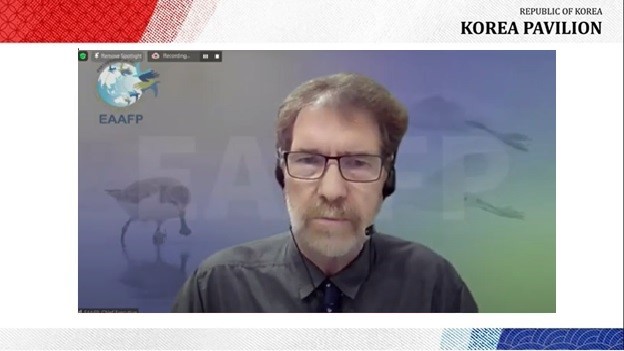
Mr. Doug Watkins introduced the East Asian-Australasian Flyway Partnership and stated “For past 12 months, we have been working closely with Asian Development Bank and BirdLife International for conservation of migratory waterbirds, restoration of ecosystem and internationally important wetlands and to address issues of livelihoods in some of the countries that used to depend on these wetlands. RFI has an ambitious agenda, and we are pleased with how it is developing and the enthusiasm that is generating. We are looking forward to working with national governments and ADB to roll out this program.”
Following his intervention, the moderator proceeded a discussion and Q&A session for panelists to give information on financing for wetland conservation and its outcomes for local communities. The panelists addressed questions about how to bring more financial resources for nature-based projects, role of national governments, the benefit for local communities who depend on wetlands, and more.
The 2-hour long panel discussion came to an end with closing remarks by Mr. Jerker Tamelander, Director of Science and Policy at Ramsar Convention Secretariat. He stressed that through conserving wetlands, we have the opportunity to achieve multiple objectives. And this is a basis for getting financing into places.
Watch the event again:
And for Discussing The East Asian Australasian Flyway Initiative one (Click the video) 
Asian Development Bank is working in cooperation with BirdLife International and East Asian-Australasian Flyway Partnership for the Regional Flyway Initiative, the financing mechanism for conservation, restoration and protection of wetlands and migratory waterbirds who depend on these wetlands. Financing the conservation of wetlands will not only benefit the migratory waterbirds, also will bring economic opportunity, and prevent climate change in local communities. Essential of financing wetlands from public and private sectors and its challenge, also, the perspective from national governments and regional communities were mentioned in the discussion.

